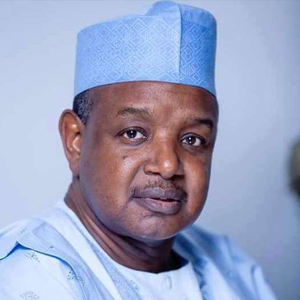The Federal Government is expected to spend N7.76 trillion on wages to federal employees, the newly negotiated salary with the Labour Congress, and other non-debt annual expenditures.
Both the newly signed 2023 supplemental budget and the baseline 2023 budget provided the data for this. An agreed salary award for workers as a result of the withdrawal of gasoline subsidies was included in the N2.18tn budget that the country’s central government recently approved.
N210 billion of the funds will be used to pay salary awards, while N605 billion has been set aside for national defense, according to Minister of Budget and Economic Planning Abubakar Bagudu.
He said, “N605bn for national defense and security is to sustain the gains made in security. It will accelerate the gains in that sector as the funds will be made available to security agencies before the year runs out.
“Equally a sum of N300bn was provided to repair bridges, including Eko and Third Mainland bridges, as well as construction, rehabilitation, and maintenance of many roads nationwide before the return of the rainy season.
“The sum of N210bn was provided for the payment of wage Awards. In negotiation with the Nigeria Labour Congress, the federal government agreed to pay N35,000 each to about 1.5 million employees of the Federal Government, and that covers September, October, November, and December 2023.”
The budget office’s appropriation data show that N1.17tn of the overall budget is allocated for capital expenditures, while N1.01tn is allocated for recurring expenses. The supplemental budget is expected to raise the Federal Government’s overall non-debt recurrent spending to N7.76 trillion and its capital expenditure to N4.53 trillion.
Additionally, the supplemental budget is intended to raise the 2023 overall budget to N19.81 trillion. After deducting debt servicing, the budget comes to N13.26 trillion. Salaries will account for at least N4.31tn, or 55.54 percent, of the N7.76tn allocated for recurrent expenditures. According to the 2023 Q1 implementation report, the government has paid wages of N978.10bn in the first three months of 2023.
Its non-debt recurrent expenses totaled N1.24 trillion, while its capital expenditures came to N175.45 billion. The government estimated that the fiscal deficit for the year would be N9.01 trillion before approving its supplemental budget. To date, the government has borrowed N2.30 trillion to pay its budget.
The Federal Government recently protested about growing spending expenditures in light of declining revenue.
On Wednesday, Mrs. Oluwatoyin Madein, the Accountant General of the Federation, observed that the government’s expenditures are outpacing its ability to generate money.
She said, “Since the revenue is in this position, the expenditure too has not also been helping matters, especially with the current economic reality where the prices of things are going up regularly.
“The expenditure too is on the rise and the strategies to increase revenue must be worked upon continuously to ensure that we are having funds to meet the expectations of Nigerians.”
The decline in oil output and the failure to diversify the economy sufficiently have resulted in Nigeria’s well-documented revenue issue.
In her summary, Zainab Ahmed, the former Minister of Finance, Budget, and National Planning, stated that “revenue generation remains the major fiscal constraint of the federation.”












